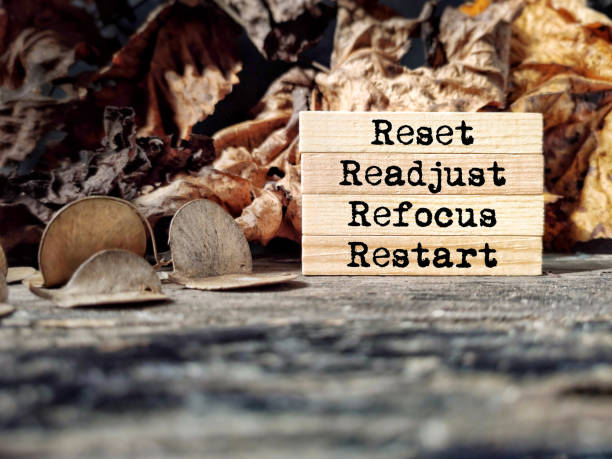Staying motivated is essential for achieving goals and maintaining productivity, whether in personal endeavors, academic pursuits, or professional life. However, maintaining motivation can be challenging, especially when faced with obstacles, setbacks, or a lack of immediate results. This guide provides practical strategies to help how to stay motivated, sustain your energy, and achieve long-term success.
Understanding Motivation

Our judgements and behaviors are driven by our motivation. It can be intrinsic (driven by internal rewards like personal satisfaction) or extrinsic (driven by external rewards like money or recognition). Understanding the type of motivation that drives you can help tailor your approach to staying motivated.
1. Set Clear, Achievable Goals

Establishing measurable objectives is one of the best strategies to maintain motivation. Vague goals like “get fit” or “be successful” are hard to measure and can lead to frustration. Rather, divide more ambitious goals into more doable, smaller chores. For example, if your goal is to get fit, set specific targets like “exercise for 30 minutes, five days a week” or “lose 10 pounds in three months.”
SMART Goals (Specific, Measurable, Achievable, Relevant, Time-bound) are a proven method for setting effective goals. These criteria ensure that your goals are clear and attainable within a certain timeframe, helping to maintain focus and motivation.
Read More: https://thetopteninfo.com/2024/07/31/how-to-set-achievable-goals-2/
2. Develop a Positive Mindset

Maintaining your motivation is mostly dependent on your mentality. A positive outlook allows you to view challenges as opportunities rather than obstacles. Embrace a growth mindset, which is the belief that abilities and intelligence can be developed with effort and learning. This mindset encourages perseverance, even when faced with difficulties.
Affirmations and positive self-talk can reinforce your belief in your abilities. Remind yourself often of your accomplishments in the past and your talents. This helps build confidence and reduces the impact of negative thoughts that can undermine motivation.
3. Create a Vision Board

Visualizing your goals can be a powerful motivator. A vision board is a collage of images, quotes, and other items that represent what you want to achieve. By placing it in a prominent location, you’ll have a daily reminder of your goals and aspirations. The process of creating a vision board can also clarify your goals, making them feel more tangible and achievable. Regularly reviewing and updating your vision board ensures that it stays relevant and continues to inspire you.
4. Break Tasks into Smaller Steps

Big jobs can be intimidating and cause people to put things off. Breaking down a big project into smaller, manageable steps can make it less daunting and help you stay motivated as you complete each part. For example, if you’re working on a long-term project, set daily or weekly targets. Each small achievement will give you a sense of progress and motivate you to keep going. Celebrate these small wins, as they are milestones on the way to your larger goal.
5. Establish a Routine

Routines can provide structure and help you develop good habits that support your goals. When certain activities become part of your daily routine, they require less effort and willpower, reducing the chances of losing motivation. Start by identifying the key activities that will help you achieve your goals and schedule them into your day. Over time, these activities will become automatic, making it easier to stay on track without having to constantly rely on motivation alone.
6. Seek Accountability

Accountability can be a powerful motivator. When you share your goals with others, you create a sense of responsibility to follow through. This could be in the form of a mentor, coach, friend, or even a social media community. Regular check-ins with your accountability partner can provide encouragement and keep you focused. They can offer constructive feedback and help you stay motivated, especially during tough times.
7. Find Inspiration

Inspiration can come from various sources, such as books, podcasts, videos, or influential people. Consuming content that aligns with your goals can keep you motivated and provide new ideas and perspectives. Surround yourself with motivational content that resonates with you. This could include reading success stories, watching motivational speeches, or following individuals who have achieved what you aspire to. Inspiration fuels motivation and can reignite your passion when it starts to wane.
8. Reward Yourself

Rewards are a great way to reinforce positive behaviour and maintain motivation. Reward yourself with a fun activity when you hit a goal. The reward doesn’t have to be extravagant; it could be something as simple as taking a break, enjoying your favourite snack, or spending time on a hobby. The key is to make sure the reward is meaningful to you and tied directly to your progress. This encouraging feedback motivates you to keep pursuing your objectives.
9. Focus on the Process, Not Just the Outcome

While it’s important to have end goals, focusing solely on the outcome can sometimes lead to frustration, especially if progress is slow. Instead, try to enjoy the process of working toward your goals. Embrace the journey and recognize the growth and learning that happens along the way. By focusing on the daily habits and actions that contribute to your long-term goals, you can stay motivated even when the end result seems distant. This shift in focus can reduce pressure and make the pursuit of your goals more enjoyable.
10. Manage Stress and Avoid Burnout

Stress and burnout are common reasons for a loss of motivation. It’s essential to manage your stress levels and ensure you’re not overextending yourself. Regular breaks, proper sleep, and a balanced lifestyle are crucial for maintaining motivation. Incorporate relaxation techniques like deep breathing, meditation, or exercise into your routine. These activities can help you recharge and keep your energy levels high, allowing you to stay motivated over the long term.
11. Reflect on Your Progress

Re-evaluating your progress on a regular basis helps keep you inspired. Take time to review what you’ve accomplished, what challenges you’ve faced, and what you can improve. This reflection not only highlights your progress but also helps you learn from any setbacks. Journaling is an effective way to track your journey. Jot down your feelings, ideas, and experiences in relation to your objectives. This practice can provide insight into your motivation levels and help you adjust your approach as needed.
12. Stay Flexible and Adapt

It’s important to stay flexible and adapt to changing circumstances. If you encounter obstacles, be willing to adjust your goals or the steps you’re taking to achieve them. Flexibility doesn’t mean giving up; it’s about finding new ways to stay on track. By being open to change and willing to try different approaches, you can maintain your motivation even in the face of challenges.
Conclusion
Maintaining motivation is an ongoing process that calls for work, introspection, and the appropriate tactics. By setting clear goals, maintaining a positive mindset, and regularly reflecting on your progress, you can keep your motivation levels high and achieve your desired outcomes. Remember, motivation isn’t a constant state; it’s something you cultivate daily. Embrace the journey, celebrate small victories, and keep pushing forward, even when the going gets tough. You can accomplish everything you set your mind to if you have the correct attitude and perseverance.
Frequently Asked Questions (FAQ)
1. What should I do when I feel demotivated?
When you feel demotivated, start by taking a short break to clear your mind. Engage in activities that relax or inspire you, such as going for a walk, meditating, or reading motivational content. Go over your objectives again and tell yourself why they are significant to you. Breaking down tasks into smaller steps can also make it easier to regain momentum.
2. How can I stay motivated when working on long-term goals?
Staying motivated on long-term goals can be challenging. To maintain motivation, set smaller milestones along the way and celebrate each achievement. Keep your vision board updated, regularly review your progress, and seek accountability from others. Adjust your goals if necessary to keep them relevant and achievable.
3. Is it normal to lose motivation?
Yes, it’s normal to experience fluctuations in motivation. Life circumstances, stress, and fatigue can all impact your motivation levels. The key is to recognize these dips and implement strategies to reignite your motivation, such as revisiting your goals, adjusting your approach, or seeking inspiration.
4. How can I avoid procrastination?
Procrastination can be tackled by breaking tasks into smaller, manageable steps, setting clear deadlines, and eliminating distractions. Developing a routine and using techniques like the Pomodoro method (working in short, focused intervals) can help you stay on track. Rewarding yourself for completing tasks can also reduce procrastination.
5. What if my goals change over time?
It’s completely natural for goals to evolve over time. If your goals change, take time to reflect on why they’ve shifted and adjust your plan accordingly. Staying flexible and adapting to new circumstances will help you maintain motivation as you pursue new objectives.





